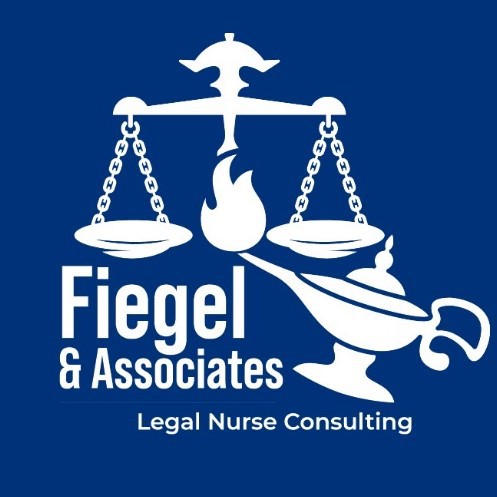Certified Legal Nurse Consultants (CLNC) play a crucial role in bridging the gap between medicine and law. Whether it’s analyzing medical records, helping shape case strategies, or serving as an expert witness, CLNCs bring unique insights to the table. But let’s face it—2025 isn’t without its share of challenges for the profession. Changes in laws, new tech, and ethical grey areas have all added some complexity to the mix. Consider this list of key challenges and how to handle them like a pro.
- Data Privacy and Security
Here’s the deal—you’re constantly handling sensitive patient info, and the regulations around data security are getting stricter by the day. Between HIPAA and the HITECH Act, it’s non-negotiable to stay on top of your data game. Add to that the ever-evolving cyber threats, and it’s clear: protecting that data is not just important—it’s essential.
What You Can Do:
- Make sure your data storage and communication systems are encrypted.
- Regularly check for security vulnerabilities with audits.
- Stay informed about the latest privacy laws to stay compliant.
- AI-Driven Analysis and Bias
AI is everywhere these days, and it’s transforming how we analyze complex medical data. But as amazing as these tools are, they’re not perfect. Bias in algorithms can rear its ugly head, potentially impacting case outcomes. As an CLNC, it’s all about striking a balance between tech efficiency and good old-fashioned human judgment.
How to Navigate:
- Look for AI tools designed with transparency and fairness in mind.
- Use AI to enhance your work—not replace your expertise.
- Document any manual checks or validations you do on AI-generated results.
- Scope of Practice and Credential Challenges
The CLNC field isn’t heavily regulated, which can be a double-edged sword. It allows flexibility, sure, but it also raises questions about who’s qualified to do what. And with increasingly specialized cases coming your way, credentials matter more than ever. Know the difference between a certification and a certificate. “By setting and enforcing standards for certification, the American Board for Specialty Nursing Certification (ABSNC) seeks to protect the public and consumers through their mission to provide assurance to the public that the nurse holding the credential from an accredited certification program possesses the knowledge, skills, and competency for quality practice in the specialty.” https://lncc.aalnc.org/ (The American Association of Legal Nurse Consultants”
Steps to Stay Ahead:
- Be crystal clear about your role and expertise in your contracts.
- Stick to your lane and avoid opinions on topics outside your scope.
- Ethical and Legal Implications of Telehealth Cases
Telehealth—it’s here to stay, and it’s complicating the legal landscape. Questions about licensure, standards of care, and jurisdictional differences are popping up more frequently in these cases. As an CLNC, you’re expected to help untangle this web.
Tips to Succeed:
- Team up with attorneys who know the ins and outs of telehealth laws.
- Familiarize yourself with federal rules and agreements like the Interstate Medical Licensure Compact.
- Pay close attention to the unique documentation and protocols of telehealth care.
- Evolving Role in Expert Testimony
Let’s talk courtrooms. Being an expert witness means every word you say is under a microscope. Judges are demanding more transparency and methodological rigor. If you’re not careful, you could be dismissed or, worse, have your credibility questioned.
What to Keep in Mind:
- Prep like your reputation depends on it—because it does!
- Base everything you say on solid evidence and peer-reviewed research.
- Take workshops to sharpen your courtroom skills.
- Ethical Concerns in Dual Roles
Here’s a tricky one: playing both consultant and expert witness in the same case. While it might seem efficient, it’s a slippery slope that can lead to ethical dilemmas or accusations of bias.
Best Practices:
- Clearly define your role before you start working on a case.
- Follow industry guidelines to stay impartial.
- Don’t hesitate to bow out if there’s a risk of role confusion.
- Navigating Cross-Border Cases
In today’s interconnected world, patients are often treated across multiple jurisdictions. That means analyzing records and applying standards of care isn’t always straightforward. Legal nurse consultants are increasingly facing the challenge of handling international nuances.
How to Manage:
- Partner with attorneys who know their way around international laws.
- Be culturally sensitive and aware of different healthcare systems.
- Reach out to your global network for help when you need it.
Wrapping It Up
At Fiegel & Associates Legal Nurse Consulting, we’re here to support you through these challenges and more. Whether you’re navigating complex cases, keeping up with regulations, or refining your expertise, we are your partner every step of the way. Visit us at www.legalfiegel.com to learn more about how we can help you succeed.
Legal nurse consulting in 2025 comes with its challenges, but let’s not forget the opportunities, too. By staying on top of these issues, pursuing continuous education, and embracing the latest technology (without losing sight of ethics), you can confidently tackle whatever comes your way. Remember, your role as a CLNC is indispensable in bridging the worlds of healthcare and law!

